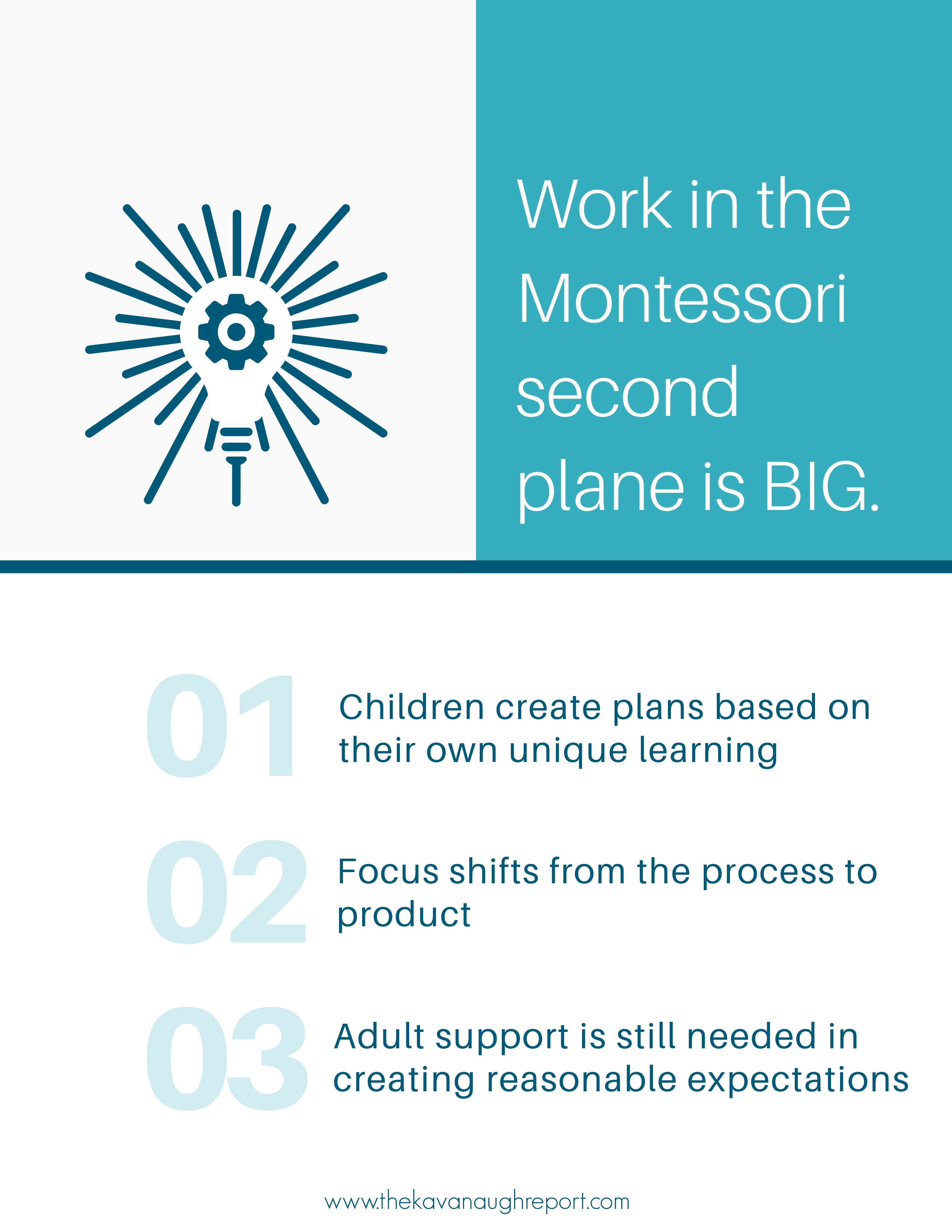Right now, Henry and Nora are both second plane children. Their ideas flourish, their minds are always going, and their tongues hold nothing back! It's such an amazing shift to see from the little busy first plane of development children they once were. One of the most interesting and challenging parts of parenting a second plane child has been accepting and making space for their need for big work. Everything is a project. Everything is a big idea.
Even here at home, it’s rarely as simple as a tray with a material anymore. It’s not reading cards and matching them. No, it’s reading, drawing, matching, making a book, and then laminating and discussing if we can sell it. It’s not *just* making a birthday card for a friend. But it’s needing the quill and ink, and writing a full blown letter, right this very moment. It’s big work. It is big rewards. It’s big mess. And it is big time fascinating.
Montessori Elementary Kids Activities are BIG
It's also big time frustrating (for the adult.) Suddenly there's 1,000 scraps of paper on your floor for some game you don't really understand but they are very important and should never ever be moved. Or you find yourself needing to set limits around safety that are contrary to a plan that your child feels very attached to.
7 Tips For Big Montessori Second Plane Work
Here are a few things that have helped me to make space for this work in our Montessori home as my children have gotten older and the work has gotten bigger.
- Ask questions without judgment. Use questions as a way to engage with the project and help them fill in a plan that they may not have completely thought about. This isn't always necessary, but with bigger projects this can be a way to help your child make it a reasonable and finish-able plan. Some questions that have been helpful: What tools/supplies do you need? What's your plan for cleaning up your work? What's your budget and do you have the money to buy what you need?
- Let the project reach its natural end. Sometimes this means that the project is completed and the plan is seen through fruition. But sometimes the end is not the projected end. Sometimes the project is the planning, and learning to live with that is ok. In the first plane there is a big emphasis on process over product, that doesn't immediately and automatically change in the second plane.
- Set limits when necessary. Second plane children still need and require limits. For example, Henry is very into making stop motion videos and would love to upload them to the internet. I don't find that safe at his age, so how do we come up with a solution that feels acceptable to them but also keeps them safe. Other limits might be set about where a project can occur, how it is restored and who is involved in the work.
- Give time. Second plane children need lots of free time to be slow and creative, just like they did in the first plane. Don't over schedule children, allow them to be bored. There's so many options for classes/activities for older kids but think what opportunities are limited by all the extras.
- Open ended materials. The second plane isn't a time for little coordinated trays and activities. Second plane kids need access to materials they can pull together for their projects. Gathering supplies is part of the work, but they also need to have clear order. As second plane kids lose their sense of external order, we need to scaffold them in being successful with restoring order by making that easy.
- Don't fall to pressure to "complete" for them. It can be really easy to want to take over and see a project through the rough parts, or times when they may take a break from a specific plan. But, just like taking over play in the first plane, this isn't helpful for second plane kids. If they need or ask for help, how can you provide the minimum amount of needed help without too much adult influence? This will require observation on your part about what is truly a struggle and what might just need some creative problem solving.
- Suggest collaboration. Second plane kids are wired for working with others. They crave and need social interaction. Collaboration can make the project more fulfilling, but also more do-able for children. This collaboration could be reaching out to another trusted adult with experience in this area, or with other children. This can take some of the pressure off of you and help them see the project through to the end.
Have you noticed this need in your older child? How do you support big work in your home?




